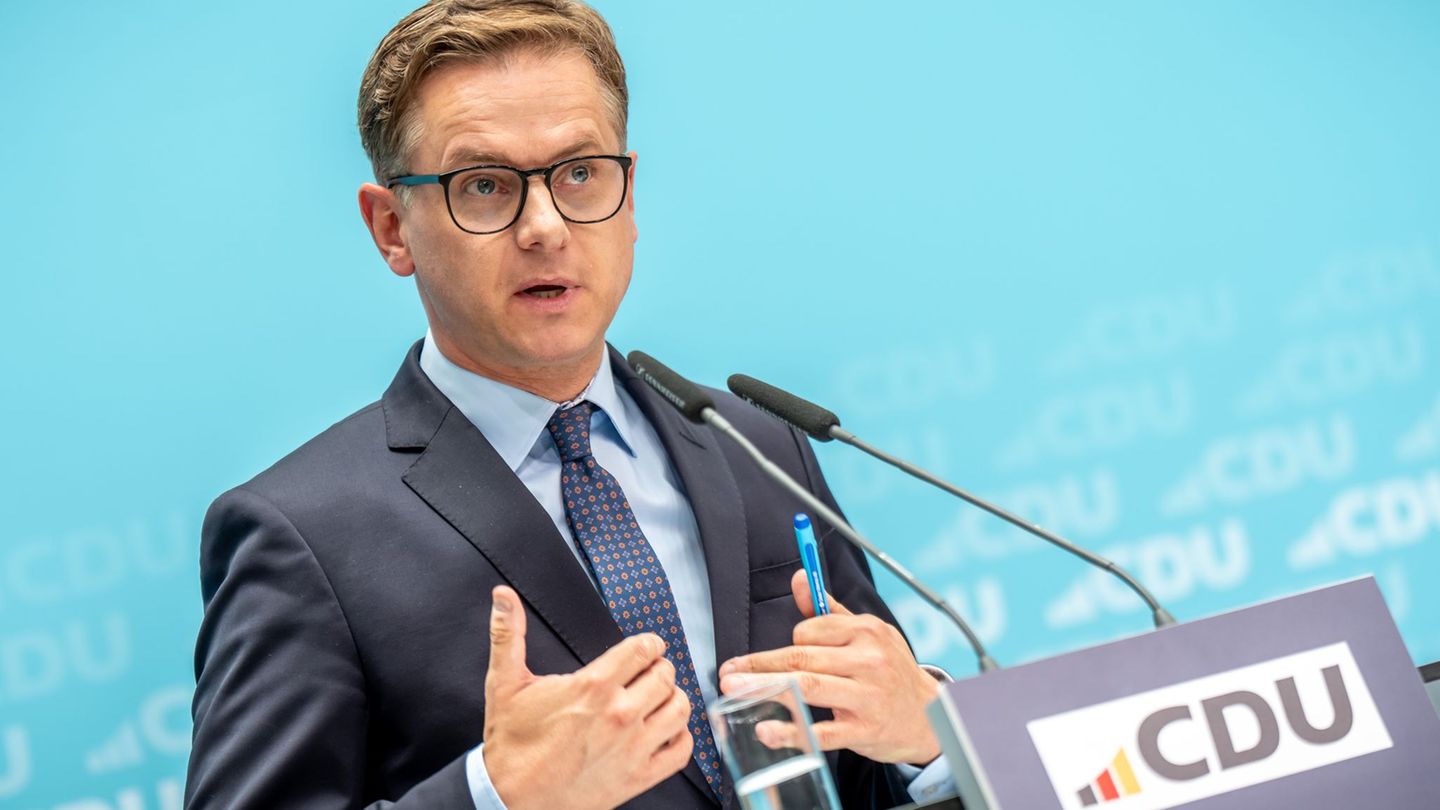China’s government presented an ambitious growth target at the start of the People’s Congress. Nevertheless, uncertainty remains great. The military can be happy because its budget is increasing significantly.
China wants to achieve economic growth of “around five” percent this year despite severe economic problems – and is once again significantly increasing its military budget. Chinese Prime Minister Li Qiang named these projects in his annual report at the start of the People’s Congress in Beijing.
“It will not be easy to achieve this year’s goals,” Li vowed to the 2,872 delegates who gathered in sleet at the Great Hall of the People. You have to “work hard” and pull together on all sides.
Li made it clear that the transformation of the economy must continue. “We should adhere to the principles of pursuing progress while ensuring stability, promoting stability through progress, and creating new things before abolishing old things,” Li said. The transformation of the growth model must be pushed forward. Some observers also see the departure from the previous system, which guaranteed China a rapid economic recovery but did not ensure sustainable growth, as a better choice for the country with 1.4 billion inhabitants.
More money for the People’s Liberation Army
Beijing wants to invest heavily in the military again. According to the draft budget, the defense budget was increased by 7.2 percent to 1.67 trillion yuan (around 214 billion euros). The decision to significantly increase the budget again is also likely to be related to the tense relationship with Taiwan, which China sees as a breakaway province, and disputed territorial claims in the South China Sea. Experts do not yet expect a war to break out in the strait between China and Taiwan. However, Beijing is striving for reunification with the island republic – if necessary with military means.
The People’s Republic maintains the largest army in the world in terms of an estimated two million active soldiers. In recent years, China’s defense budget has grown faster than total government spending. The increase was also mostly above the economic growth rate. However, according to experts, the official military budget only reflects a portion of the actual expenditure, as many expenses for the People’s Liberation Army are also covered by other budgets.
Doubts about the credibility of the economic data
Last year, China had already aimed for growth of “around five percent”, which was ultimately slightly exceeded. According to official data from the Beijing Statistics Office, the second largest economy grew by 5.2 percent. However, critics fundamentally question the accuracy of Chinese economic data. Nevertheless, the level of the growth target is considered an important yardstick and indicator of the government’s economic policy course.
Recently, the Chinese economy suffered primarily from weak global demand, the ailing real estate market and weak domestic consumption. The Chinese stock market is under great pressure.
End of money from the watering can?
In view of the economic crisis, domestic and foreign companies in particular were hoping for important signals from the People’s Congress this year. But the government’s signals were mixed at best. Observers described the growth target of around five percent as quite ambitious. There were also signs that Beijing wanted to provide more support to the crisis-ridden real estate market. For the first time in years, the government reports presented on Tuesday no longer included the phrase “that apartments are for living and not for speculation.”
Overall, however, there was a lack of stimulus that would suggest a major economic stimulus package. The message is rather: Beijing wants to stay the course and not spread the money out in a scattershot manner. Future technologies in particular should be promoted. When it comes to new debt, however, restraint is the order of the day.
Moderate new debt
According to the draft budget, the deficit in the current year should be three percent of economic output. Three percent was also planned for 2022, but this was later increased to 3.8 percent.
Li also announced that more than twelve million new jobs will be created in cities this year. In addition, as in the previous year, the government is aiming for an unemployment rate of around 5.5 percent. Inflation is expected to be around three percent.
The National People’s Congress is China’s non-freely elected parliament under the exclusive rule of the Communist Party. At its annual meeting, MPs approve the plans and goals of the government of state and party leader Xi Jinping and Prime Minister Li. The People’s Congress will meet until next Monday.
Source: Stern




